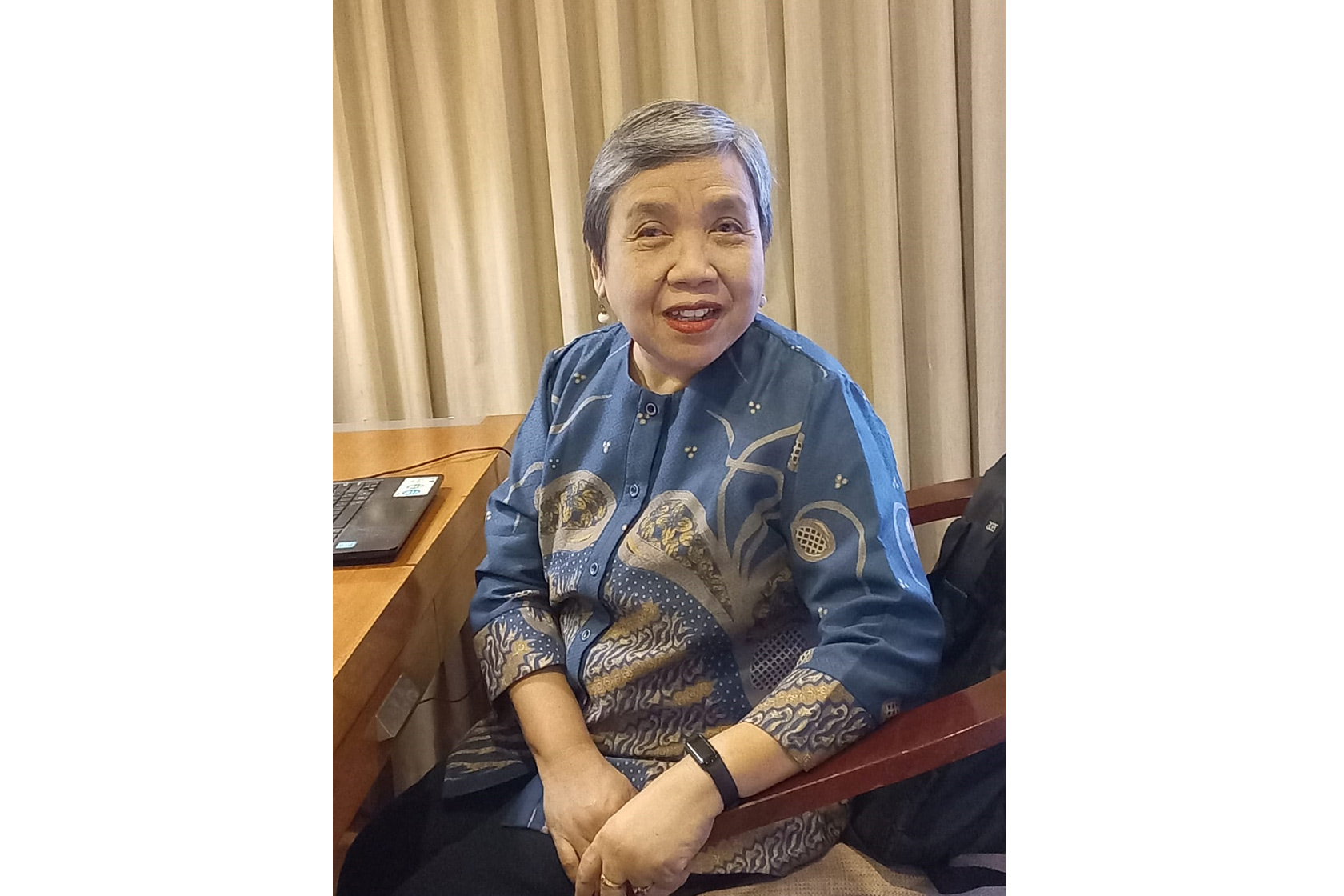Indonesian women have made varying degrees of progress in education, political participation, and leadership over the past decades. Unfortunately, asserting their rights at home remains the most challenging for women.
Muslim scholar and feminist activist Lies Marcoes Natsir said that women's rights issues in the private domain, such as female circumcision, domestic violence, and sexual violence, remain difficult to address due to the culture and beliefs in marital and familial relationships.
"An imaginary line divides women's roles into the public and private spheres. It is difficult to cross the line and address women's rights issues in the private domain because it is as if we broke into someone's bedroom or living room," said Lies, who leads the policy research institute Rumah Kita Bersama Foundation (Rumah KitaB), which aims to protect the rights of marginalised people, including women and minorities, through critical thinking on Islamic teaching.
Although legislation advanced with the passage of the Elimination of Domestic Violence Act in 2004 and, more recently, the Crime of Sexual Violence Act in 2022, enforcing the laws has proven challenging, added Lies.
Research-based Arguments to Counter Gender-biased Views
As an expert on gender equality, disability, and social inclusion (GEDSI), Lies believes in the power of compelling arguments backed by solid research in challenging patriarchal interpretations of religion and culture. That has been the focus of Rumah KitaB and other institutions supporting the Congress of Indonesian Women Ulemas (KUPI), such as Fahmina Institute, Rahima, and Fatayat.
She used research-based data to advocate for the elimination of female genital mutilation (FGM), a traumatic and often fatal practice that is still prevalent in Indonesia. The Ministry of Health's basic health research (Riskesdas) in 2013 found that 51.2 per cent of girls aged 0 to 11 years had undergone FGM.
Lies and Rumah KitaB also utilise research to urge lawmakers to raise women's minimum age of marriage to 16 years old as stipulated in the Marriage Law. The researchers argue that the progressive views of Islam interpret maturity as a woman's ability to make a political decision for herself instead of mere biological age.
The collective work of CSOs like Rumah KitaB, the Women's Coalition, Kapal Perempuan, and the Women's Health Coalition, with the National Development Planning Agency (Bappenas) and the Supreme Court, finally led to the amendment of the Law in 2018, which stipulates the minimum age of marriage is 19 for both men and women.
"Religious views that are conveyed rationally based on research and progressive arguments can positively influence laws," said Lies, who holds a masters degree in Medical Anthropology from Amsterdam University in the Netherlands.
As part of International Women's Day this year, Lies Marcoes has been invited by The Oslo Coalition on Freedom of Religion or Belief to give a presentation on KUPI's fatwa on female circumcision on March 8 at Amsterdam's Vrije Universiteit.
Trail-blazing Muslim Feminist
Born in Ciamis, West Java, in 1958, Lies first learned about gender inequality at home, where her mother, the primary breadwinner, remained the submissive figure that had to obey her father.
Lies, however, only began to explore gender issues when she worked for Kalyanamitra, a non-governmental organisation promoting women's rights, in 1992. She observed how Kalyanamitra's secular feminism struggled to address gender issues from religious aspects of gender issues in Indonesia, the world's most populous Muslim country.
"A secular feminist approach would see hijab as a symbol of women's submission to men, while in reality, Muslim women have many reasons to wear hijab. For example, women in Iran wear the burqa as a symbol of resistance to capitalism," said Lies.
Seeing the gap in communicating gender issues from a religious perspective, she decided to work for the Society for Pesantren (Islamic boarding school) and Community Development (P3M). In P3M, Lies brought her feminist arguments into the religious domain to address gender issues, particularly on female reproductive rights. Later, P3M became the origin of KUPI.
Lies has since pioneered the works on Islam and gender issues and initiated organisations that champion gender equality. Among her work was Fiqh An-Nisa, a program focusing on women's reproductive health rights in Islam.
Another breakthrough was Dawrah Fiqh Concerning Women – Manual for a Course on Islam and Gender, a manual on gender training with an Islamic perspective. Published by Fahmina Institute in Cirebon, it is the first and only such manual in English and is used by Muslim feminists throughout the Islamic world.
"We are fortunate in Indonesia because there is a space for Muslim and secular feminists to work together to find solutions to injustice on religious and cultural grounds. Institutions like Nahdlatul Ulema and Muhammadiyah, as well as state Islamic universities, play a critical role in allowing this convergence because they foster critical thinking rather than dogmatic thinking," Lies said.
Australia's Support for Gender Equity Programs
As an independent consultant on gender issues, Lies has also received various support for her work, including from the Australian Government through the Australian Awards and the Department of Foreign Affairs and Trade.
In 2017, Lies participated in the Australia Awards Short Course on Islamic Women Leadership, where participants met with a local government women's crisis centre and shared their initiatives on women's rights, such as childcare service and the environment.
Lies used the experience from the short course to assist Cianjur Regency in West Java in drafting a bylaw on the prevention of child marriage. The bylaw was passed in 2022.
With the support of DFAT, since March 2020, Lies has been assisting Rumah KitaB in designing and developing programs to empower millennial women to work or to become entrepreneurs. She also created training materials to counter conservative Islam's gender norms that restrict women in the name of upholding Islamic values.
DFAT also supports Lies to continue Rumah KitaB's research on women and radicalism at KITLV- Leiden University to understand the rising women's involvement in radicalised groups.
"Research-based arguments should remain the basis for the advocacy on gender equality," said Lies.
"We should not get tired to keep making noise in any platforms - TikTok, social media, anything - to voice gender issues in the domestic domain, which are rarely discussed, allowing women to express their private problems and share their life experiences without being humiliated."


 Lies Marcoes Natsir Connects Islam and Gender Equality through Research and Advocacy
Lies Marcoes Natsir Connects Islam and Gender Equality through Research and Advocacy
